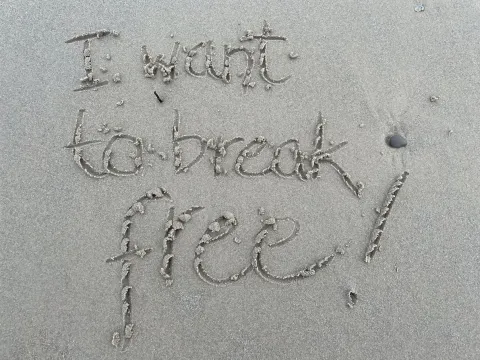
Photo by James Hutton
It’s human nature to have desires. More often, they arise more than we’re aware of. And once those desires enter our minds, there’s nothing that we want more than getting them. It gives us a sense of fulfillment, to feel momentarily happy.
When Realization Kicks In
We’re fortunate enough to be given free will to decide something that will affect our lives on varying scales. Once those desires start to rise in us, that free will is tested, and situations will indirectly ask us if that is an opportunity to give in or give up.
Conditioning ourselves to evaluate good or evil desires is a valuable mindset, especially if they bring a promise of satisfaction. Life offers us many options beyond what we want and need. It is up to us where to take the plunge.
Gearing Ourselves
The first step to gaining control over our desires is to shift our mindset significantly, no matter how difficult it seems. Get a breather somewhere quiet and commit to a series of deep thinking about the things that you want in life. Be it material things like getting a car or buying food and new clothes; or emotional needs like booking a vacation or gaining fame, among other things.
You need to assess the level of want that these desires have in your body – if you are itching or dying to get it, no matter the cost. Ask yourself, is it the feeling that drives you to be better or worse? Do you feel desperation just by thinking about not gaining what you want, or does it take time to seep into your mind until you realize that this desire has made its way into your heart?
Try picturing a scenario where you’ve achieved it. How would you feel? What kind of person would you become if you finally had the desire in your hands? Because you’ve laid out the possibility, you now have the power to decide what to do with it. You are the only key to true contentment, which will help you avoid the red flags that lead to problematic desires.
Wants vs. Needs: The Difference
Defining wants and needs will ultimately determine our willpower to take control of the desires that strive to overtake us. When we say “wants,” it may improve our mood and provide emotional gratification. A “need,” however, is essential for living and functioning. Based on these definitions, a need may be something like food, clothes, shelter, and healthcare.
While a want can be your present craving for anything, material possessions you can live without, etc. A thought-provoking book for self-discovery is also best if you need literary insight on taking control over desires that are borderline good or bad. Additionally, we should still be aware that these terms are fluid and can be used interchangeably, which is factored into our lifestyle and the environment we grew up in.
Here are the following questions that will help you tell the difference between wants and needs:
• Are there financial alternatives to meet my needs?
• What impact would this need to make if I didn’t have it? Do I feel satisfied once I get it?
• Will this want or need make a dent in my finances if I make a purchase?
Keeping It Under Control
You’ll have an easier time taking control of your desires if you never fail to self-evaluate how those wants and needs will impact your life. It may be challenging to do that since those two tend to lie in a blurry line that will test your wisdom and capacity to separate both. Ensure that if you deem something a need, is it something you’ve been pressured to do to look good in front of others? Or does that desire come from a place of personal accomplishment that will be sustainable in the long run?
Let’s be clear, and there’s nothing wrong with having desires. It’s human nature to feel the urge to attain something, regardless of what form it would take. It is alarming when we turn those desires into our masters and fail to be on top of it. We have the power to take hold and let go of those wants and needs.
If we think about it, desires can be a beautiful thing that will enhance our life experiences until it becomes fond memory. Acknowledging and trusting in our ability to sift through the two sides will help us avoid feeding our ego, evade the daily struggle, and see things fall into place.
